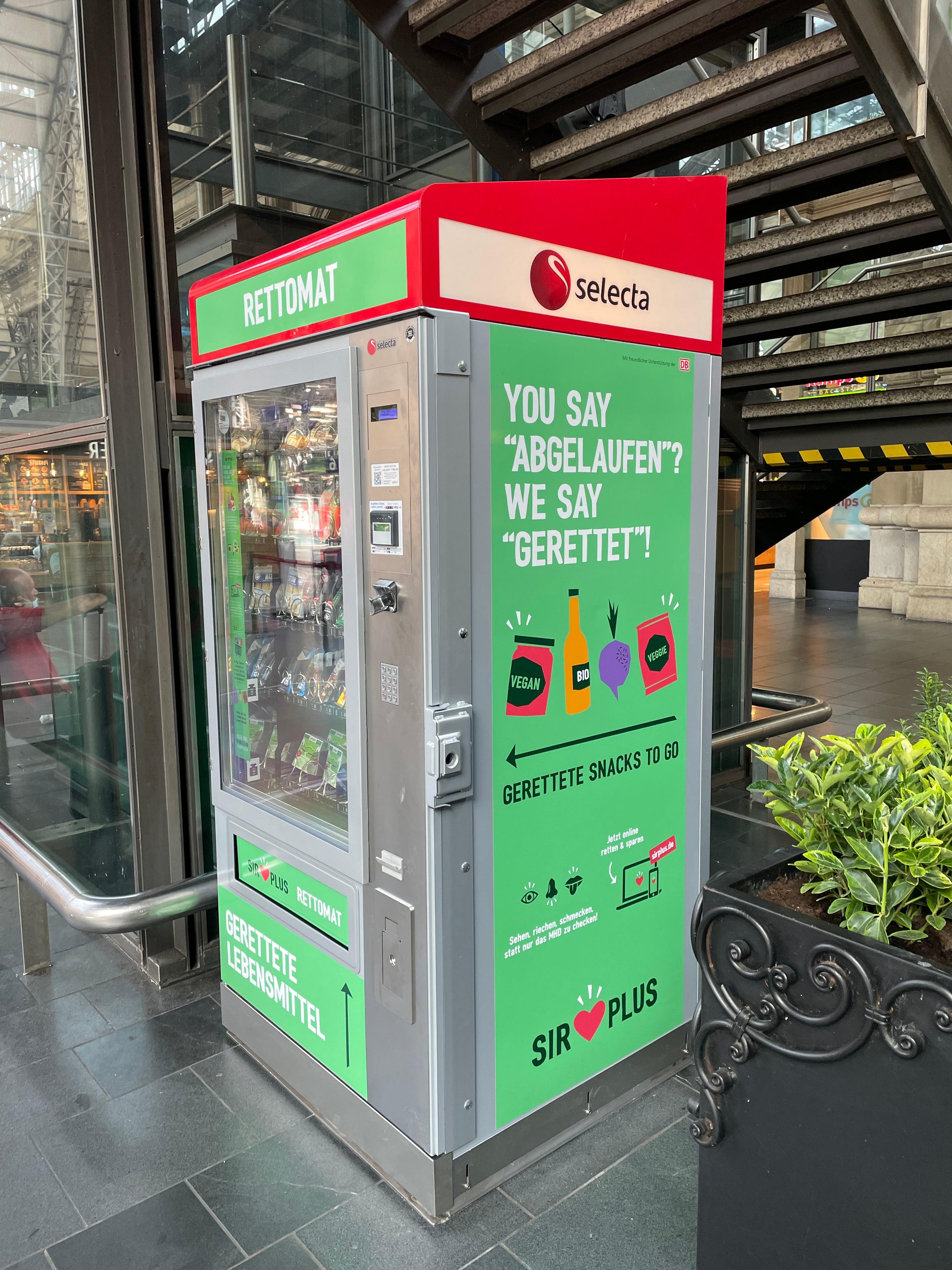In July, the motto is: NO to plastic! We've written down for you what #plasticfreejuly means, which EU standard has come into force, and how we handle the issue of plastic and plastic packaging.
Good news for Plastic free July
Plastic Free July is an initiative that campaigns against the use of plastic and the production of plastic waste, proposing various measures to combat it. 2021 was a successful year in this regard: since July, single-use plastic products for which more sustainable alternatives exist have been banned according to a new EU standard. These include, among others, cotton swabs, plastic cutlery and plates, drinking straws, stirrers, and balloon sticks ( source ).

How #plasticfree are we at SIRPLUS?
The issue of plastic plays a recurring role in connection with our rescued food – both for our customers and for ourselves. If you browse our online shop or our rescue markets for rescued food, you'll undoubtedly have seen some products packaged in more than a little plastic. We are constantly faced with criticism that we rescue and stock such environmentally harmful products . This criticism is justified, because in the oceans, where plastic waste constantly ends up, the packaging material causes enormous damage: 135,000 marine mammals die every year as a result ( source ).
 Plastic is anything but fantastic: SIRPLUS founder Raphael with team members at the climate strike in September 2019
Plastic is anything but fantastic: SIRPLUS founder Raphael with team members at the climate strike in September 2019
Why we also rescue products in plastic packaging: Reason 1
Generally, we rescue everything we can , even if the product isn't produced or packaged in a particularly sustainable way. This also includes taking products from rather infamous food corporations – these are especially prone to unsustainable packaging. By buying such products at a very low price, we prevent large corporations from profiting from them. Furthermore, primary demand decreases – after all, as our customer, you no longer have to buy the product directly from retailers, and all the resources used for that are eliminated.
The following always applies: If the opportunity arises to source products from sustainable, fair, or vegan brands, we prioritize these and promote these products or partnerships more than others. Perhaps you've already noticed the wide range of organic, purely vegetarian or vegan, and Fairtrade products in our online shop (or in our rescue markets)? In our experience and conviction, a both/and approach is more effective than an either/or one.
Why we also rescue products in plastic packaging: Reason 2
The most important thing for us: Every rescued product contains vast amounts of resources – and plastic-packaged products especially so. Production, cultivation (e.g., land use or water), transport, and even the packaging require enormous amounts of energy, which is valued and not wasted by rescuing these products together. If we want to rescue the contents with you, this unfortunately also includes the (in some cases) environmentally harmful packaging. With your purchase, you rescue the valuable resources used for the product and give them back their due appreciation . We 've already compiled information for you here, for example, on how much CO₂e you save with one of our boxes.
 How much CO2e you save by rescuing food
How much CO2e you save by rescuing food
Our anti-plastic measures
We've already made some progress in reducing plastic: We're delighted to offer you the opportunity to do your shopping completely plastic-free with our zero-waste corner at the Rettermarkt on Schloßstraße . At our Rettermarkt at Wilmersdorfer Straße 58, you can take home food from our bistro in sustainable, reusable containers from VYTAL .
We've also improved our packaging process for online orders: from our cushioning material made from recycled cardboard or reused film to climate-neutral shipping of packages via DPD Total Zero and DHL GoGreen. Even with damaged return packages, we dedicate additional manpower to cleaning the products if necessary, restocking them in our warehouse whenever possible, and thus bringing them back into the cycle once more.
How we can further avoid plastic in the future and thus do something good for the environment remains one of our main concerns.



